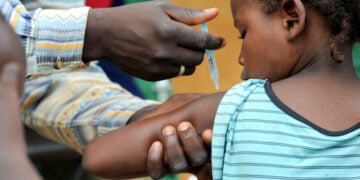Minister of health and social welfare, Prof. Ali Pate, has said that Nigeria was facing a growing health crisis with Sugar Sweetened Beverages (SSBs) related diseases such as obesity and diabetes.
The minister stated this yesterday at the National Conference on SSB tax, themed “Health Tax as a Recipe for Improved Healthcare Financing,” organised by Corporate Accountability and Public Participation Africa (CAPPA) in Abuja.
SSBs are any liquid that is sweetened with various forms of added sugars, such as corn syrup, fructose, glucose, honey, lactose, malt syrup, and sucrose.
They also include carbonated, energy, milk-based, pre-sweetened teas, coffees, and juice drinks.
Represented by the permanent secretary of the Federal Ministry of Health and Social Welfare, Daju Kachollom, the minister noted that the associated healthcare costs for SSB-related diseases are escalating at an alarming rate.
He said, “The cost of treating diabetes per person has surged from an average of N60,000 in 2011 to N800,000 in 2021, and it is projected to exceed N1,000,000 by 2030.”
However, Dr. Pate highlighted the critical role of health tax in enhancing public health, stating that the SSBs tax is targeted at reducing the consumption of these unhealthy beverages as a way of protecting Nigerians from non-communicable diseases.
“In 2021, Nigeria joined over 100 countries that have introduced taxes on sugar-sweetened beverages. This tax, embedded in the Finance Act 2021, levies a ₦10 tax on each litre of all non-alcoholic, sweetened, and carbonated drinks.
“This tax serves as a deterrent and generates essential revenue that can be reinvested into healthcare initiatives, particularly preventive measures and the treatment of non-communicable diseases,” he explained.
In her welcome address, the director of the Food and Drug Services Department, Federal Ministry of Health and Social Welfare, Pharm Olubunmi Aribeana, stressed the crucial role of SSBs tax implementation in curbing the rising tide of non-communicable diseases, particularly those linked to excessive sugar consumption.
She advocated for healthy dietary choices supported by effective policies and robust health systems.
“Healthy diets are crucial for promoting health, supporting active lifestyles, and preventing diseases, including both communicable and non-communicable ones,” said Aribeana.
On his part, the executive director of CAPPA, Akinbode Oluwafemi, urged the government to increase the SSB tax from N10 to N130 per litre or implement a revised tax structure to 50 per cent of the total retail price rate of SSB products as recommended by the Global Tax Force for Health.
“This adjustment will not only align with the World Health Organisation’s (WHO) recommendations but also with the 2024 Bloomberg report on effective health taxes,” he said.





